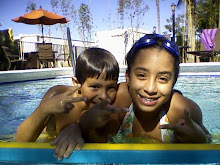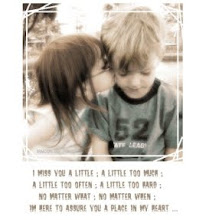
VIRGO (The One that Waits)
Dominant in relationships.
Someone loves them right now.
Always wants the last word.
Caring.
Smart.
Loud.
Loyal.
Easy to talk to.
Everything you ever wanted.
Easy to please.
The one and only.
Traditional
Virgo Traits:
Modest and shy
Meticulous and reliable
Practical and diligent
Intelligent and analytical.
On the dark side....
Fussy and a worrier
Overcritical and harsh
Perfectionist and conservative.
Virgo is the only zodiacal sign represented by a female. It is sometimes thought of as a potentially creative girl, delicately lovely; sometimes as a somewhat older woman, intelligent but rather pedantic and spinsterish. The latter impression is sometimes confirmed by the Virgoan preciseness, refinement, fastidious love of cleanliness, hygiene and good order, conventionality and aristocratic attitude of reserve. They are usually observant, shrewd, critically inclined, judicious, patient, practical supporters of the status quo, and tend toward conservatism in all departments of life. On the surface they are emotionally cold, and sometimes this goes deeper, for their habit of suppressing their natural kindness may in the end cause it to atrophy, with the result that they shrink from committing themselves to friendship, make few relationships, and those they do make they are careful to keep superficial.
But the outward lack of feeling may, in some individuals born under this sign, conceal too much emotion, to which they are afraid of giving way because they do not trust others, nor do they have confidence in themselves and their judgments. This is because they are conscious of certain shortcomings in themselves of worldliness, of practicality, of sophistication and of outgoingness. So they bring the art of self concealment to a high pitch, hiding their apprehensiveness about themselves and their often considerable sympathy with other people under a mantle of matter-of-factness and undemonstrative, quiet reserve. They are still waters that run deep. Yet in their unassuming, outwardly cheerful and agreeable fashion, they can be sensible, discreet, well spoken, wise and witty, with a good understanding of other people's problems which they can tackle with a practicality not always evident in their own personal relationships.
Both sexes have considerable charm and dignity, which make some male Virgoans appear effeminate when they are not. In marriage they can be genuinely affectionate, making good spouses and parents, but their love making is a perfection of technique rather than the expression of desire, and they must be careful not to mate with a partner whose sex drive requires a passion they cannot match.
They are intellectually enquiring, methodical and logical, studious and teachable. They combine mental ingenuity with the ability to produce a clear analysis of the most complicated problems. They have an excellent eye for detail but they may be so meticulous that they neglect larger issues. Also, although they are realists, they may slow down projects by being too exact.
They are practical with their hands, good technicians and have genuine inventive talents, Thoroughness, hard work and conscientiousness are their hallmarks, and they are such perfectionists that, if things go wrong, they are easily discouraged. Because of their ability to see every angle of a many-sided question, they are unhappy with abstract theorizing. Appreciating the many different points of view as they do, they find philosophical concepts difficult, and they vacillate and have no confidence in any conclusions at which they arrive.
With these qualities, they are better as subordinates than leaders. Responsibility irks them and they often lack the breadth of strategic vision that a leader needs Virgoans are essentially tacticians, admirable in the attainment of limited objectives. Their self distrust is something they project on to other people and tends to make them exacting employers, though in the demands they make on those under them they temper this attitude with justice. They have potential abilities in the arts, sciences and languages. Language especially they use correctly, clearly, consciously and formally, as grammarians and etymologists rather than for literary interests, yet they are likely to have a good memory for apt quotations. Although they are well suited for careers in machine drawing, surveying and similar occupations, they are better fitted for a job in a library or office than a workshop.
Their minds are such that they need the stimulus of practical problems to be solved rather than the mere routine or working to set specifications that need no thought. They are careful with money and their interest in statistics makes them excellent bookkeepers and accountants. They also make good editors, physicists and analytical chemists. They may also find success as welfare workers, ministering to those less fortunate than themselves. They can be doctors, nurses, psychologists, teachers, confidential secretaries, technologists, inspectors, musicians, critics, public speakers and writers especially of reference works such as dictionaries and encyclopedias. Both sexes have a deep interest in history, a feature recognized by astrological authorities for at least two hundred years. If they go in for a business career their shrewdness and analytical ingenuity could tempt them into dishonesty, though they usually have enough moral sense to resist temptation. Female Virgoans may find a career in fashion, for they have a flair for dress, in which they can be trend setters. In any profession they choose the natives of this sign readily assimilate new ideas, but always with caution, conserving what they consider worth keeping from the past. They love country life but are unlikely to make good farmers, unless they can contrive to carry out their work without outraging their sense of hygiene and cleanliness.
Their faults, as is usual with all zodiacal types, are the extremes of their virtues. Fastidious reticence and modesty become old-maidishness and persnicketiness; balanced criticism becomes carping and nagging; and concern for detail becomes overspecialization. Virgoans are liable to indecision in wider issues and this can become chronic, turning molehills of minor difficulties into Himalayas of crisis. Their prudence can become guile and their carefulness, turned in on themselves, can produce worriers and hypochondriacs.
Possible Health Concerns...
Virgo is said to govern the hands, abdomen, intestines, spleen and central nervous system. Illnesses to which its natives are prone include catarrh, cold, coughs, pleurisies, pneumonia and nervous instabilities. Their natures make them inclined to worry and this makes them vulnerable to stomach and bowel troubles, including colic and ulcers. Male Virgoans may have trouble with their sexual organs. Both sexes are strongly interested in drugs and esoteric cuisine and as their delicate stomachs require them to be careful about their diet, it is essential that they treat their fascination with exotic food with extreme care.
LIKES:
Health foods
Lists
Hygiene
Order
Wholesomeness
DISLIKES:
Hazards to health
Anything sordid
Sloppy workers
Squalor
Being uncertain
PROBLEMS THAT MAY ARISE FOR YOU, AND THEIR SOLUTIONS:
As with all sun signs, we all have unique traits to our personalities. When these traits are suppressed, or unrealized, problems will arise. However, with astrology we can examine the problem and assess the proper solution based on the sun sign characteristics. As a Virgo you may see things below that really strike home. Try the solution, you most likely will be amazed at the results. If you find yourself on the receiving end of the negatives below, it is because you are failing to express the positive.
Problem: Finding yourself frequently alone and unable to keep friends for more than a few weeks.
Solution: Try not to be argumentative over much and the constant criticism that Virgos give to their companions are not endearing qualities to have. Try to live and let live, they will love you for it.
Problem: People tend to avoid making close contact with you.
Solution: Being too preoccupied with health and making it a continual topic of conversation. Try to keep your tips and suggestions about health and health products to yourself unless asked for them.
Problem: Dissatisfied with the way your life is turning out; no excitement or change to speak of.
Solution: You may be restricting yourself by reducing your life to a set of theories and pigeon-holes. Try to express the positive by first asking yourself, Who or what are you serving; are you devoted or are you enslaved. Answer those questions and then start a new path that includes your true worth.
Problem: You may feel that your life and your climb to success is a steep hill that you may never be able to scale.
Solution: Try expressing the positive traits of your finely tuned analytical reasoning, employing the light touch with employees and coworkers, while expressing genuine concern for all; You will find those mountains turning into hills that you run right over.
Your ruling planet is MERCURY
Mean distance from the Sun (AU) 0.387
Sidereal period of orbit (years) 0.24
Equatorial radius (km) 2,439
Polar radius (km) 2,439
Body rotation period (hours) 1,408
Tilt of equator to orbit (degrees) 0
Number of observed satellites 0
The colors for Virgo are GREEN AND DARK BROWN.
Your starstone is the beautiful, SARDONYX. The Sardonyx can be found with many different colored bands on it but the one suggested for Virgo is that of the reddish brown variety. It is in the quartz family and is mined around the world.
Some Famous Virgoeans That Share Your Sign!
August 23, 1970 - River Phoenix - Actor
August 24, 1770 - Friedrich Hegal - Writer
August 24, 1944 - Chris Chubbock - Celebrity
August 25, 1918 - Leonard Bernstein - Conductor
August 25, 1918 - George Wallace - Politician
August 25, 1930 - Sean Connery - Actor
August 25, 1933 - Regis Philbin - TV Personality
August 25, 1947 - Anne Archer - Actress
August 25, 1954 - Elvis Costello - Singer
August 26, 1819 - Prince Albert - Royalty
August 26, 1904 - Christopher Isherwood - Religious Figure
August 26, 1921 - Zipporah Dobyns - Astrologer
August 26, 1923 - Richard Attenborough - TV Host
August 27, 1871 - Theodore Dreiser - Writer
August 27, 1908 - Lyndon Johnson - President USA
Auguat 27, 1910 - Mother Teresa - Humanitarian
August 27, 1929 - Yasser Arafat - Political Figure
August 27, 1931 - Sri Chinmoy - Religious Leader
August 27, 1939 - Pee Wee Herman - Comdian
August 27, 1943 - Tuesday Weld - Actress
August 28, 1749 - Johann V. Goethe - Writer
August 29, 1876 - Frances Kettering - Engineer
August 29, 1907 - Don Loper - Designer
August 29, 1962 - Maeterlinck - Historical Figure
August 29, 1915 - Ingrid Bergman - Actress
August 29, 1938 - Elliot Gould - Actor
August 29, 1958 - Michael Jackson - Singer
August 30, 1797 - Mary Godwin Shelley - Writer
August 30, 1943 - Jean Claud Killy - Skier
August 31, 1880 - Queen Wilhelmina - Neth. Royalt
August 31, 1903 - Arthur Godfrey - Entertainer
August 31, 1908 - William Saroyan - Writer
August 31, 1916 - Daniel Schorr - Jounalist
August 31, 1924 - Buddy Hacket - Actor
August 31, 1928 - James Coburn - Actor
August 31, 1949 - Richard Gere - Actor
August 31, 1950 - Arthur Bremer - Criminal
September 1, 1875 - William Rice Burroughs - Writer
September 1. 1907 - Walter Reuther - Union Official
September 1, 1924 - Rocky Marciano - Boxer
September 1, 1938 - Alan Dershowitz - Attorney
September 1, 1939 - Lilly Tomlin - Comediene
September 1. 1957 - Gloria Estefan - Singer
September 2, 1919 - Marge Champion - Dancer
September 2, 1948 - Terry Bradshaw - Sports Figure
September 2, 1951 - Mark Harmon - Actor
September 2, 1961 - Michael Thiessen - Astrologer
September 3, 1935 - Eileen Brennan - Actress
September 3, 1943 - Valarie Perrine - Actress
September 3, 1965 - Charlie Sheen - Actor
September 4, 1530 - Ivan the Terrible - Royalty
September 4, 1824 - Anton Bruckner - Composer
September 4, 1896 - Antinon Artaud - Writer
September 4, 1908 - Richard Wright - Inventor
September 4, 1913 - Micky Cohen - Gangster
September 4, 1918 - Paul Harvey - Broadcaster
September 4, 1920 - Craig Claiborne - Writer
September 4, 1929 - Tomas Eagelton - Politician
September 5, 1912 - John Cage - Musician
September 5, 1913 - John Mitchell - Politician
September 5, 1927 - Paul Volcker - Federal Reserve
September 5, 1902 - Darryl F. Zanuck - Producer
September 5, 1929 - Bob Newhart - Actor
September 5, 1940 - Raquel Welch - Actress
September 6, 1888 - Joseph Kennedy Sr. - Famous Family
September 6, 1860 - Jane Adams - Social Worker
September 6, 1944 - Swoosie Kurtz - Actress
September 7, 1887 - Edith Sitwell - Writer
September 7, 1900 - Taylor Caldwell - Writer
September 7, 1924 - Daniel Inouye - Politician
September 7, 1943 - Peter Lynch - Financial Wiz
September 7, 1936 - Buddy Holly - Singer
September 8, 1841 - Antonin Dvorak - Composer
September 8, 1889 - Robert Taft - Politician
September 8, 1922 - Lyndon Larouche - Celebrity
September 8, 1924 - Grace Metalious - Writer
September 8, 1925 - Peter Sellers - Actor
September 8, 1948 - Sam Nun - Politician
September 9, 1890 - Jimmy “the Greek Snyder - Celebrity
September 9. 1925 - Cliff Robertson - Actor
September 9, 1941 - Otis Redding - Musician
September 9, 1951 - Michael Keaton - Actor
September 10, 1929 - Arnold Palmer - Sport Figure
September 10, 1934 - Charles Kuralt - Journalist
September 10, 1945 - Jose Feliciano - Singer
September 10, 1948 - Margaret Trudeau - Political Wife
September 10, 1953 - Amy Irving - Actress
September 10, 1924 - Tom Landry - Sports Figure
September 11, 1862 - O. Henry - Writer
September 11, 1885 - D.H. Lawrence - Writer
September 11, 1932 - Bob Packwood - Politician
September 11, 1940 - Brian Depalma - Director
September 11, 1962 - Kristy McNichol - Actress
September 12, 1880 - Henry L. Menken - Writer
September 12, 1888 - Maurice Chevalier - Actor
September 12, 1940 - Linda Gray - Actress
September 13, 1819 - Clara Schumann - Composer
September 13, 1857 - Milton Hershey - Industrialist
September 13, 1905 - Claudette Colbert - Actress
September 13, 1944 - Jacqueline Bissett - Actress
September 13, 1948 - Nell Carter - Actress
September 14, 1879 - Margaret Sanger - Activist
September 15, 1789 - George Fenimore Cooper - Writer
September 15, 1857 - William H. Taft - President US
September 15, 1880 - Agatha Christie - Writer
September 15, 1922 - Jackie Cooper - Actor
September 16, 1638 - Lousi XIV 'Sun King' - Royalty
September 16, 1924 - Lauren Bacall - Actress
September 16, 1926 - Rev. Robert Schuller - Religious Leader
September 17, 1907 - Warren Burger - U.S. Justice
September 17, 1931 - Anne Bancroft - Actress
September 17, 1948 - John Ritter - Actor
September 18, 1916 - Rossano Brazzi - Actor
September 18, 1962 - Refrigerator Perry - Sports Figure
September 18, 1905 - Greta Garbo - Actress
September 19, 1928 - Mickey Mouse - Cartoon Character
September 19, 1941 - Cass Elliot - Singer
September 19, 1948 - Jeremy Irons - Actor
September 19, 1949 - Twiggy - Model
September 19, 1950 - Joan Lunden - TV Personality
September 20, 1853 - Chulalonghorn, Siam - Royalty
September 20, 1878 - Upton Sinclare - Writer
September 20, 1928 - Dr. Joyce Brothers - Psychologist
September 20, 1934 - Sophia Loren - Actress
September 21, 1874 - Gustave Holst - Composer
September 21, 1866 - H. G. Wells - Writer
September 21, 1931 - Harry Hagman - Actor
September 21, 1944 - Hamilton Jordon - Press Secretary
September 21, 1947 - Stephen King - Writer
September 21, 1950 - Bill Murray - Actor
September 22, 1932 - Ingemar Johansson - Boxer
September 22, 1960 - Joan Jett - Singer
September 22, 1960 - Tai Babilonia - Skater






























